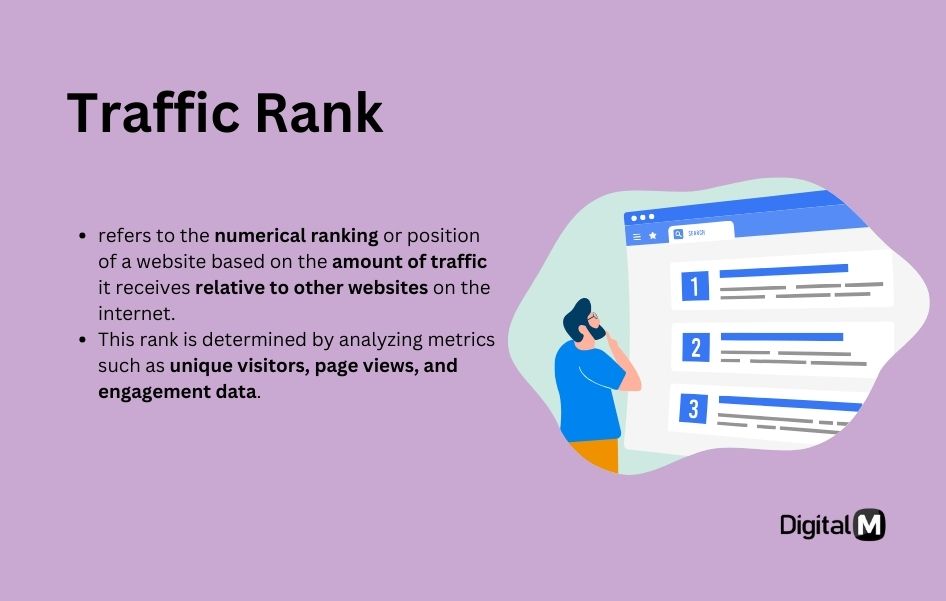Traffic Rank
Traffic rank, often associated with websites, refers to the numerical ranking or position of a website based on the amount of traffic it receives relative to other websites on the internet. This rank is determined by analyzing metrics such as unique visitors, page views, and engagement data.
Traffic rank is like assigning a number to a website to show how popular or visited it is compared to other websites. A lower number usually indicates higher popularity.

Key Points:
Comparative Measure: Traffic rank provides a way to compare the popularity of different websites on the internet.
Lower Rank, Higher Popularity: A lower traffic rank number generally indicates higher popularity and more significant web traffic.
How Traffic Rank is Determined:
Various analytics tools and companies use different algorithms and data sources to estimate and calculate website traffic ranks.
Common Traffic Rank Sources:
Alexa Traffic Rank: Alexa is a popular tool for estimating website traffic and provides a global and country-specific traffic rank.
SimilarWeb: SimilarWeb is another platform that offers insights into website traffic, including a global rank and category-specific rank.
Factors Influencing Traffic Rank:
Unique Visitors: The number of distinct individuals visiting a website.
Page Views: The total number of pages viewed by visitors.
Engagement Metrics: Time spent on the site, bounce rate, and other engagement-related data.
Limitations of Traffic Rank:
While traffic rank can provide a general idea of a website’s popularity, it may not always accurately reflect the quality of content or user experience.
Global vs. Country-Specific Rank:
Traffic rank may be provided both globally and for specific countries, giving insights into a website’s popularity in different regions.
Competitor Analysis:
Businesses and website owners often use traffic rank for competitive analysis to understand how well their site performs relative to competitors.
Why it Matters:
Popularity Indicator: Traffic rank serves as an indicator of a website’s popularity and reach.
Advertising Value: Popular websites often attract more advertising opportunities due to their larger audience.
Strategic Insights: Website owners can use traffic rank data to make informed decisions about content, marketing strategies, and user engagement.
Suggested reads: 10 Proven Ways to Increase Your Website Traffic
In summary, traffic rank is a numerical representation of a website’s popularity based on factors such as unique visitors, page views, and engagement metrics. It provides a comparative measure against other websites and is often used for competitive analysis and strategic decision-making by website owners and marketers.

